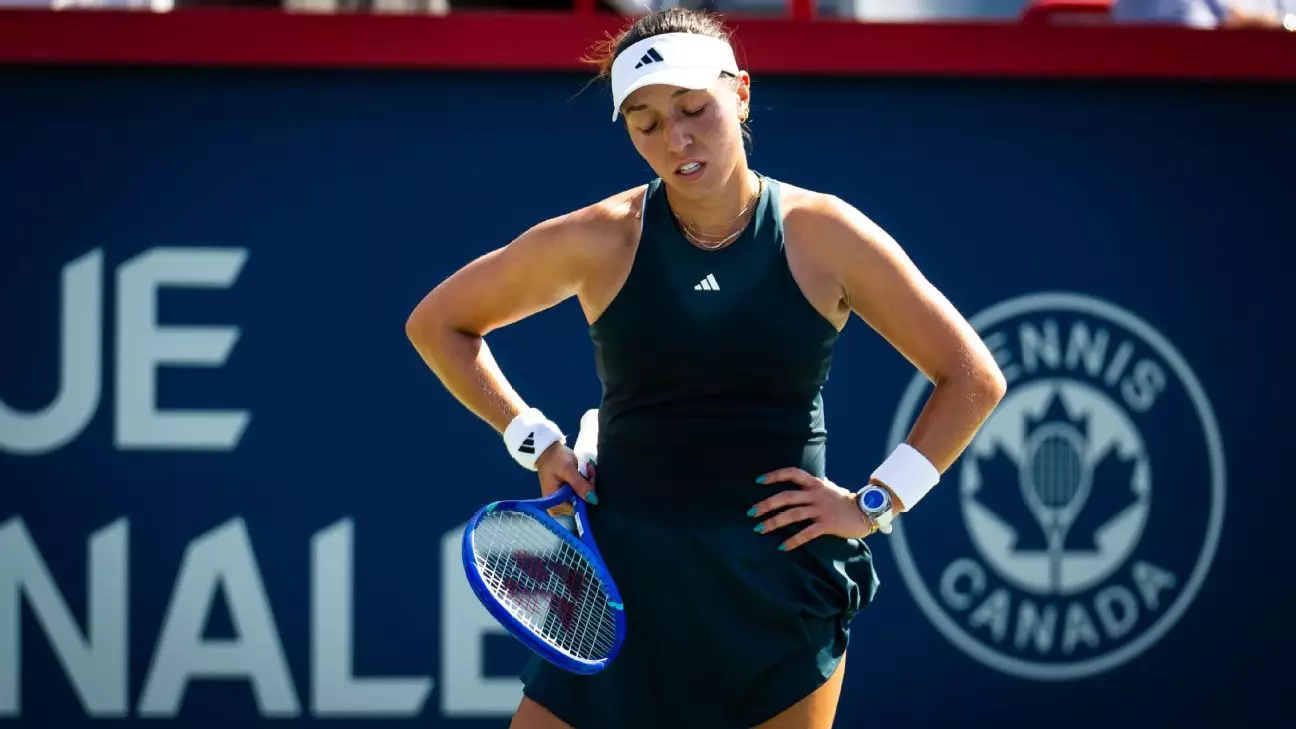In the world of professional tennis, where rankings and recent form often dictate expectations, the surprise victory of Anastasija Sevastova over Jessica Pegula underscores a fundamental truth: resilience and determination can defy the odds. The Latvian player’s decision to push through injury setbacks and come back from a career-threatening knee injury exemplifies the unpredictable nature of sports. Her victory, not just as a win but as a statement of perseverance, questions the conventional metrics we rely on—ranking, recent results, and seeds—and reminds us that underdogs with the right mindset can reshape narratives.
This upset is more than a scalp for Sevastova; it is a testament to the resilience that defines athletes who refuse to be constrained by injury, age, or ranking. The fact that she achieved this victory while ranked 386th—the lowest-ranked player to beat a top-10 opponent since Angelique Kerber’s win last year—amplifies its significance. It signals that experience, mental toughness, and a fighting spirit can elevate a player beyond predictable outcomes. Such surprises keep the sport dynamic and unpredictable, fueling both player motivation and fan engagement.
An Underestimated Veteran’s Resurgence: More Than Just an Upset
Sevastova’s story is inherently inspiring—returning from a torn ACL and a long absence to defeat a top seed is no small feat. Her journey underscores the importance of grit in an era increasingly obsessed with physical conditioning and advanced analytics. Her remarks about “unfinished business” highlight a player motivated not merely by rankings or prize money but by the innate desire to prove herself and reclaim her place on the court.
This narrative also questions the fixation on youth and constant freshness that the modern sport tends to celebrate. Sevastova’s resurgence challenges the preconceived phallic view that only young, highly-ranked players can contend at the highest levels. Her victory demonstrates that experience and mental fortitude are formidable assets in tennis’s competitive ecosystem. In a broader sense, it’s a reminder that setbacks are part of the athlete’s journey and that every comeback has the potential for moments of brilliance.
The Limitations of Self-Assessment: A Key to Improvement?
Jessica Pegula’s candid reflection on her recent form reveals a crucial insight. Her acknowledgment of inconsistency and feelings of struggle highlight the importance of self-awareness in professional growth. Many players, at her level, grapple with internal doubts and fluctuating performance, which impacts their confidence and results.
This admission, although seemingly negative, is an essential step toward improvement. Recognizing one’s weaknesses without defensiveness allows for targeted growth and emotional resilience. Pegula’s lament about her “up and down” game underscores that success is not linear—it requires continuous self-evaluation and adaptation. The challenge lies in transforming such honest assessments into actionable strategies, a task that separates good players from truly exceptional ones. Embracing vulnerability and analyzing one’s play with honesty can be powerful catalysts for future breakthroughs.
The Power of Mental Fortitude and Tactical Adaptability
Throughout the tournament, the stories of top seeds and lower-ranked players alike demonstrate that mental toughness and strategic flexibility are as important as physical skill. Iga Swiatek’s commanding win over Eva Lys, marked by her confident shot selection and mental focus, exemplifies the importance of consistency under pressure. Meanwhile, Amanda Anisimova’s resilient comeback after dropping the first set showcases her ability to maintain composure and adjust tactics mid-match.
The narrative also hints at the evolving nature of high-level tennis, where players are required to adapt not only their game but also their mental approach hour by hour. The unpredictability introduced by players like Sevastova indicates that tennis values resilience, strategic experimentation, and mental toughness over sheer ranking or physical attributes. As the sport progresses, these qualities seem to become increasingly decisive, often overshadowing baseline power or serve speed.
Resilience as the New Standard for Success
In an era where athletic longevity and mental resilience are becoming the hallmarks of greatness, Sevastova’s story shines as a beacon. Her victory encourages not just elite players but anyone aspiring to beat the odds—that setbacks and injuries can be overcome through determination and a refusal to give up. The fact that she’s fighting her way back from a serious injury at 35 showcases that persistence often outperforms raw talent alone.
By challenging the traditional notions of supremacy rooted in seeding or recent form, Sevastova’s win anchors an important message: true success in tennis—and, by extension, life—often demands endurance, courage, and a willingness to confront one’s vulnerabilities. Her perseverance elevates her from a mere competitor to an inspiring figure, demonstrating that resilience is perhaps the most valuable power a player can possess in this fiercely competitive sport.

